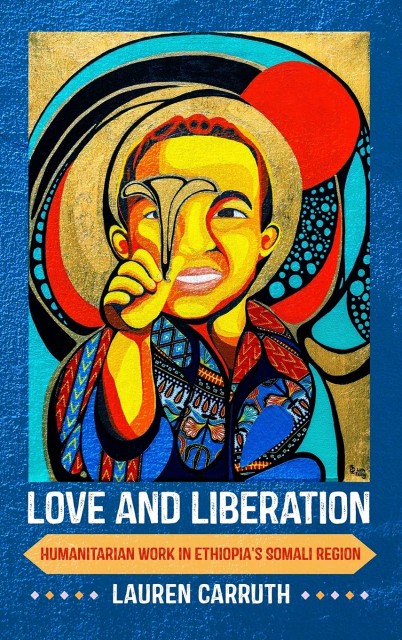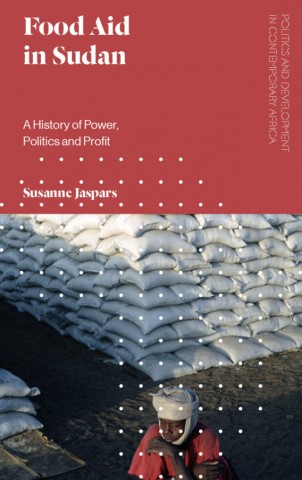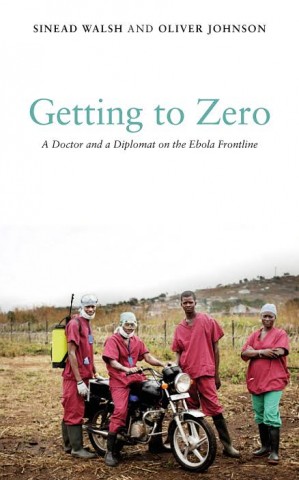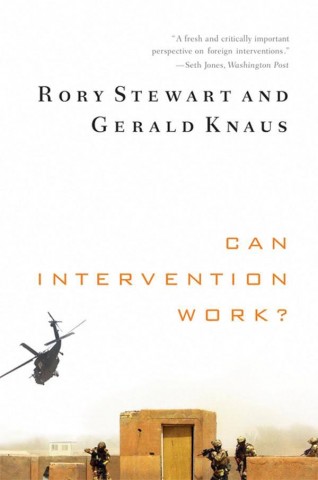Lauren Carruth provides a useful introduction to Ethiopia's Somali region, to the practices of global health, to 'humanitarianism', and to anthropology / ethnography with her 2021 publication: Love and Liberation: Humanitarian Work in Ethiopia's Somali Region (Cornell University Press). The book helpfully deconstructs international / Euro-Western conceptualizations of humanitarianism and re-orients that within the Somali context (linguistic, socio-cultural, political, historical, religious). The book is accessible and likely will find a home in undergraduate many courses. Additionally helpful for readers is the extensive use of narratives and personal stories, which makes the book very readable. Far too little research focuses on Ethiopia's Somali region, and this is a welcome addition.
Darfur has received food aid for one of the longest running periods anywhere. Decades has passed and the crisis of insecurity and malnutrition continue. Long-time humanitarian practitioner, turned academic, Susanne Jaspars, authored "Food Aid in Sudan: A History of Power, Politics and Profit" in 2018 to distill the complex story. The book is readable and presents clear cases for moving beyond the technical approach to humanitarian assistance. One limitation is the reliance upon qualitative data (which is valuable, undoubtedly), however readers might be interested to see some more quantitative data (and from a variety of sources). Nonetheless, well worth reading for those interested in the topic area and/or Darfur. Some notes:
"Food aid can address food shortages and malnutrition but also has intended and unintended political effects. These political effects range from the geopolitical functions of food aid during the Cold War and – more recently – the War on Terror (WoT) to support countries friendly to the West, to the manipulation of food aid in internal conflict. Despite aims of doing the opposite, food aid tends to support the more powerful and exclude the weak amongst crisis-affected populations." (p. 9)
"According to government officials, the Sudanisation of aid began as early as 1988, following the 'invasion' of international NGOs during the 1985 famine, with the aim of handing over the distribution of relief to local NGOs (Informants 17 and 22, 2012). This was formalised in the first half of 1990, when the Sudan government issued a policy paper on the future of INGOs in the country, which introduced the concept of twinning them with local NGOS. [sic]" (p. 98)
"President Al-Bashir announced that aid would be Sudanised. National NGOs took over much of the work of the expelled NGOs. In North Darfur, for example, the food distribution previously carried out by Action Contre La Faim (as WFP's implementing partner) was taken over by the Sudan Red Crescent and Africa Humanitarian Action (an African NGO). German Agro Action entered into new arrangements with local NGOs. Key elements of Sudanisation appear to be the requirements that INGOs should employ mainly Sudanese staff and work with local partners. When interviewed in 2014, the Director-General of HAC explained that he saw Sudanisation as Sudanese taking the initiative for intervention and responsibility for end delivery, while international staff could monitor." (p. 98)
"The establishment of the national strategic grain reserve has been an essential component of the Sudanisation of food aid. A local strategic grain reserve was first attempted in the late 1980s in response to the Western-dominated relief operation in 1985; this was managed by the Agricultural Bank of Sudan and had the aim of action as a buffer against crop failures and stabilising the market. It was a direct response to dependence on Western food aid." (p. 99)
"In the early 1990s, the government resisted emergency food aid because it conflicted with the self-sufficiency aims of the Islamist regime, causing a stand-off between the government and aid agencies during the 1991 famine." (p. 104)
"…despite the efforts of international agencies in the 1980s and 1990s, most people in Darfur received little or no food aid and instead had to rely on their own strategies and became further impoverished. Government food aid was limited and prioritised government staff or those whose support it needed. Food aid in the livelihoods regime of practices, however, did produce a highly trained group of Sudanese aid professionals, who represented and lobbied on behalf of drought- and famine-affected populations, aiming to improve both government and donor responses. Other than training of Sudanese aid professionals, and government initiatives to provide and control food aid, it appears that the main effect of international food aid in the 1980s and 1990s in Sudan was the economic benefits for central government, traders and transporters" (p. 128)
"Government representatives always referred to international food aid as a political tool that provides support to rebel movements, threatens the government's sovereignty and makes the country dependent on food imports… Government officials also linked the politicisation to more subtle ways of undermining the Sudan government. Humanitarian intervention was twice referred to as a Trojan horse, first during OLS and later during the Darfur crisis. Food aid was perceived as a means of infiltration that allowed the enemy, Western governments, to weaken Sudan's government." (p. 159)
- "It seems very hard to stop this now, but I think we all just have to believe that it is possible." (Norwegian epidemiologist, p. xvii)
Within development studies literature there is a sub-genre of memoires, biographies and dairies. Some are troubling to read. Not all are well written. Some are extremely informative. Most present aspects of the sector that are invisible for those outside of it. Daily routines. Successes and failures. Lessons. Lived experiences. I enjoy reading these works. "Getting to Zero: A Doctor and a Diplomat on the Ebola Frontline" (2018) by Sinead Walsh and Oliver Johnson falls in this sub-genre and is well worth a read. The book is quite long (422 pages), so I will not attempt a summary. Rather, a few parts that I think are worth sharing:
On training: "The second problem with Ebola trainings was that they fell into the 'training the trainers' trap, another common fault of aid programmes. The logic here was that an expert, often an international consultant flown in for the task, could provide a brief training to a selection of local staff brought together from across the country. These staff would then 'cascade' this training to their colleagues after returning home. Whilst this may be effective in some specific situations, generally a few hours or a few days of classroom-based teaching simply does not give someone enough knowledge or hands-on experience of a complex real-world challenge for them to be able to undertake it independently or teach it to others" (p. 52).
Learning in emergencies: "Key to any process of community engagement is respect. This meant being willing to sit down, listen, and then have a conversation with communities to find compromises between our preferred biomedical strategies and what they felt they could actually do. It took us a long time to get to that. Much of the community engagement in the early months was one-way, telling people what to do rather than understanding the kinds of challenges they faced and what ideas they had for how to protect themselves." (p. 343)
On roles within humanitarian and development activity: "the question of how assertive to be in a situation like this is at the core of the distinction between development and humanitarian approaches to international aid. The development mindset tends to focus on supporting the country to better serve its population over the long term, and therefore recognizes the importance of being led by the government. After all, it is the government that (usually) has the democratic legitimacy to make decisions about the country's future and is therefore best placed to run the services that aid agencies are looking to strengthen. Mutual respect and a collaborative relationship between the government and the aid agency are key in this kind of approach. As a result, timelines are usually slower than if aid agencies implement services directly. A humanitarian approach can sometimes appear to be the exact opposite. The focus in an emergency situation is not on long-term improvements to government systems but on immediate relief for those in need. There is a strong sense of urgency, and aid agencies will sometimes take control, with only a token consultation with the government, so that rapid decisions can be made. Humanitarian budgets can be quite large, allowing the swift hiring of additional staff and the bringing in of supplies for the short-term effort." (p. 66-67)
Pointing fingers: "Paul Farmer has written extensively about the tendency of people in the aid system to over-focus on weak accountability in developing countries, rather than questioning the role of developed countries, either today or historically. This is both about weak accountability within their international aid systems and about how they often contribute to corruption in developing countries." (p. 361)
Crises call for action. Bosnia, Somalia, Rwanda, Afghanistan, Libya, Syria, Yemen... The international community has responded to countries experiencing crisis in a range of ways, from heavy-handed military action to neglect. Have the activities achieved their objective? And, if not, what might be do differently in responding to crises in the future? This is the subject of "Can Intervention Work?" (2011) by Rory Stewart and Gerald Knaus. The book is two long essays, one by each of the authors. This book is essentially reading because is challenges commonly aired opinions about state-building, governance, international intervention,
In essence, the book advocates that "limited but well-resourced humanitarian interventions can succeed. Outsiders can bring a war to an end and even help build peace" (p. xiii). However, in many instances it does not, and has not. Rory focuses on some of the causes of the failures. One is the application of a planned, best-practice approach often devoid of any context. For example, staffers are higher for generalist knowledge, not linguistic abilities or depth of cultural knowledge (p. 16). He writes of Afghanistan: "They were not experts in gender or governance in Afghanistan: they were experts on gender and governance in the abstract. They had studied "lessons learned" by their colleagues in other countries and were aware of international "best practice." Their focus was one "cross-cutting themes" – issues that should be applied to all countries and integrated into any project – such as human rights, the environment, and (to quote mission criteria for a Department for International Development, or DFID, project in Iraq) "the political participation of the poor, the vulnerable and the marginalized, particularly women" (p. 20).
As an example of a failure to recognize context, regarding one of the foundational documents developed in Afghanistan, among "the sixty-nine separate tables and charts in this 137-page plan, including ones on "predicted teledensity" and "status and accomplishment, national police and law enforcement," the following words did not appear: Pashtun, Hazara, Tajik, Islam, Sharia, jihad, communism, Northern Alliance, warlord, democracy, equality, insurgency, resistance, and consent. Were you to delete the word Afghanistan from the document, and replace it with the word Botswana, it would be very difficult to know of which country you were speaking" (p. 36-37). What was the result? One example is that after a decade of work, of billions of dollars spent, and far too many lives lost, "the justice delivered by young Taliban commanders under trees was consistently rated as fairer and more efficient than that of the infrastructure of the state" (p. 45).
What does Rory propose? "The knowledge required for intervention is not theoretical knowledge – it is a form of practical wisdom: an activity in which there is no substitute for experience. The ideal instructors are those who have spent a long time getting to know a particular place and have seen it at very different times and under different conditions. The ideal education is through an ever more detailed study of the history, the geography, and the anthropology of a particular place, one the one hand, and of the limitations and manias of the West, on the other. You should not, therefore, teach interventions in the way that you teach natural science, but in the way that you teach mountain rescue. Although there is a humanitarian purpose – to save life – the central question is not "What ought you to do?" but "where are you and who are you?"" (p. 77).
The second half of the book, Gerald's essay, focuses on Bosnia. It presents four ideologies about international intervention, drawing out lessons from the Bosnian experience. He echoes Rory in many regards. For example: "In reality, interveners are never in a good position to understand what objectives are actually achievable or how to achieve them before a mission starts. It is by trial and error – by learning from failure as well as success – that a mission understands gradually what is might be able to achieve" (p. 188). Gerald concludes: "Changing other countries is extremely difficult. Historically occupations have rarely ended with an outcome that was satisfactory to the occupier. But supporting certain norms and values and opposing others has led to some astonishing successes in recent years" (p. 192).




